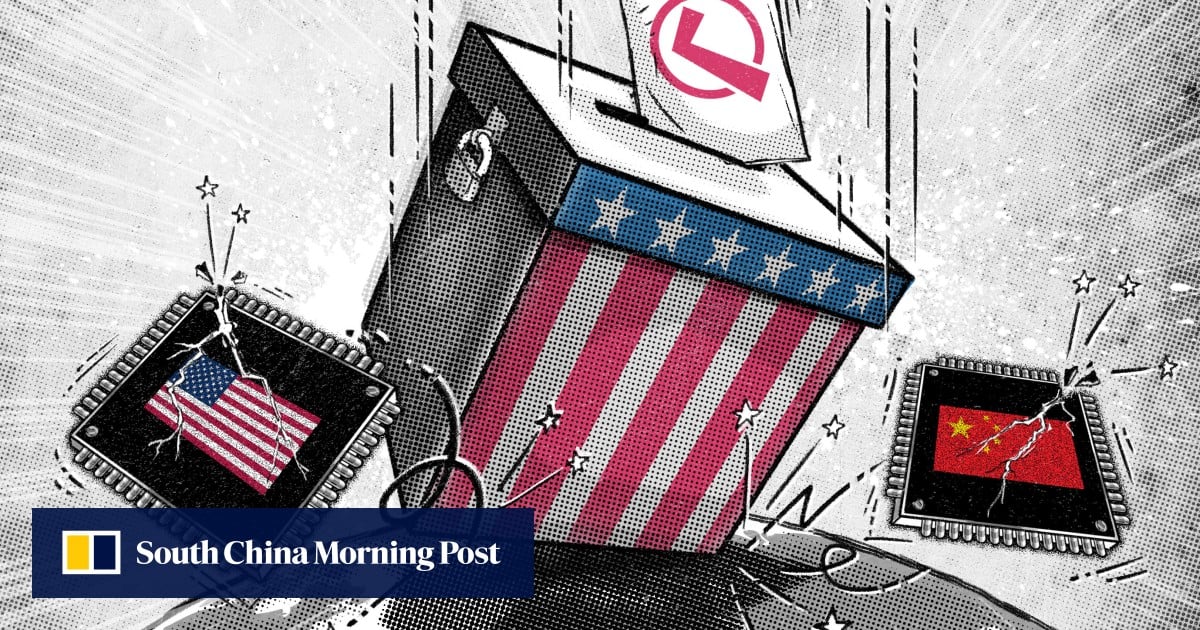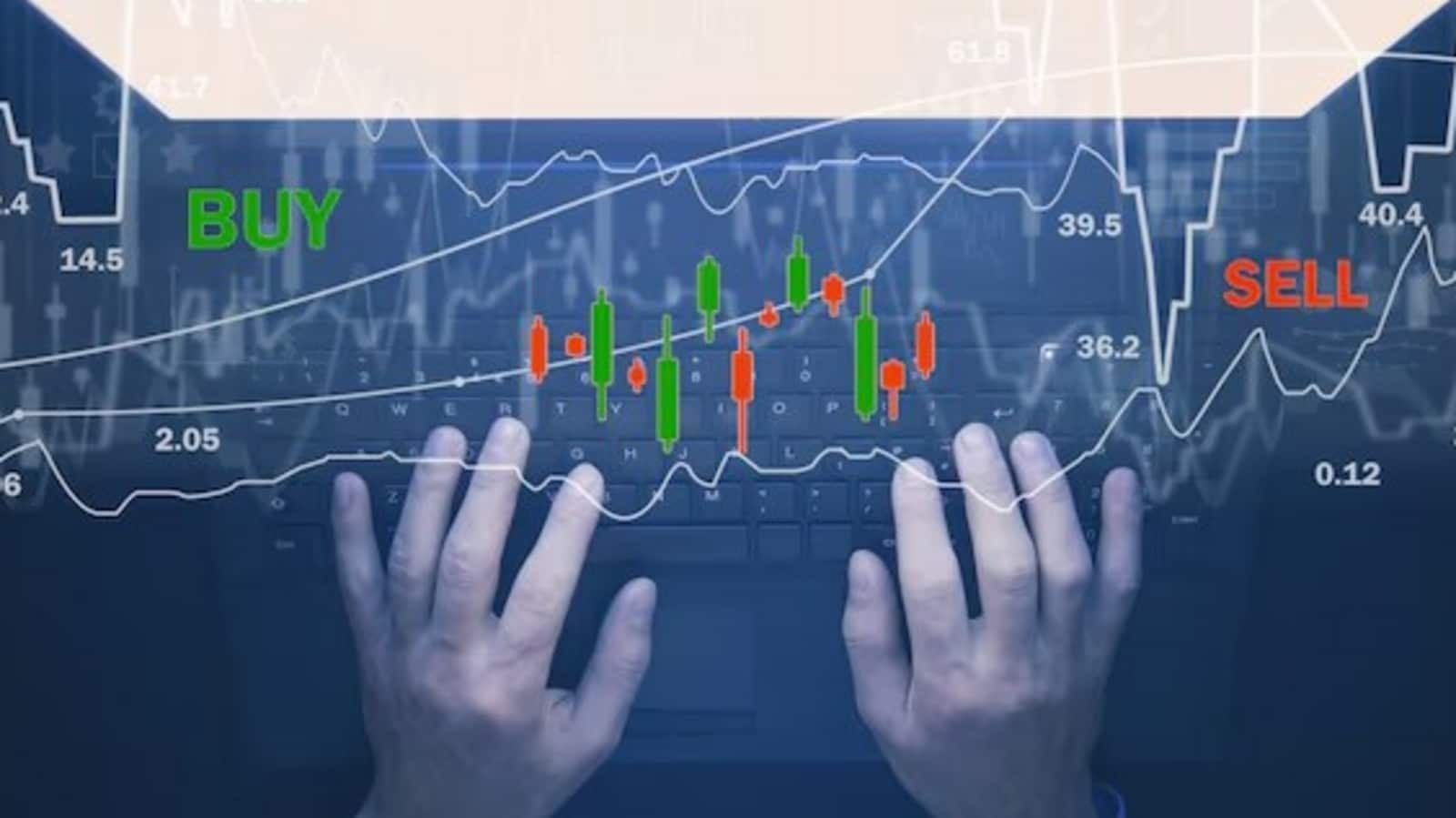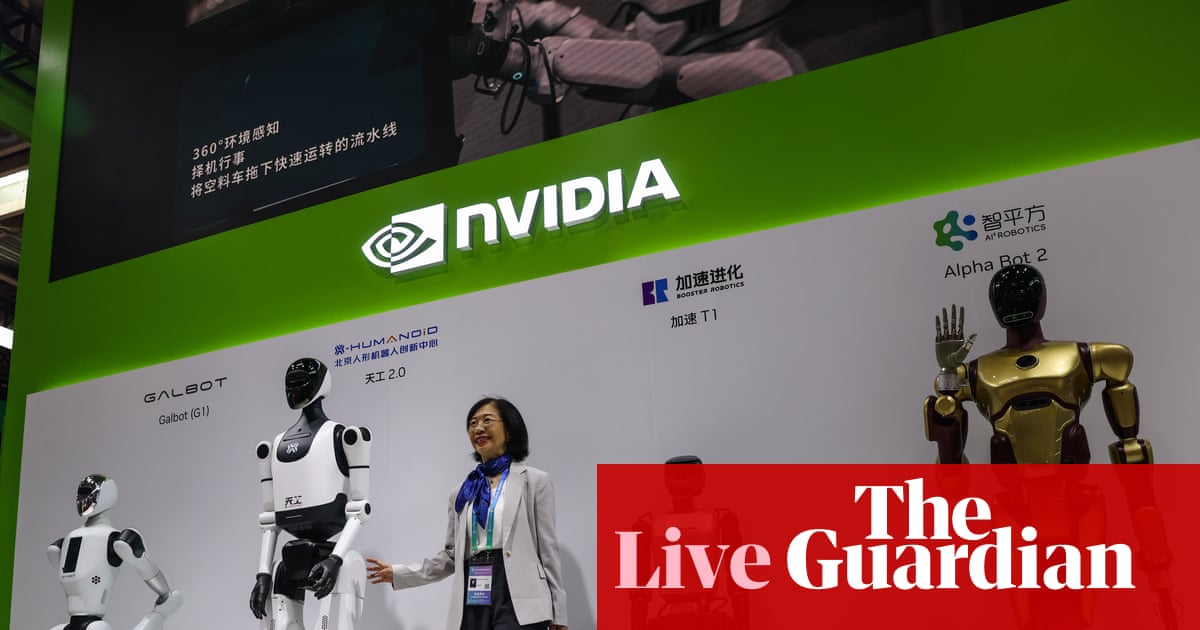The presidential race between Donald Trump and Kamala Harris comes at a time of rising geopolitical tensions on multiple fronts. In the first of an in-depth series, Jane Cai takes a look at what lies ahead for the hi-tech rivalry between China and the US.
Washington and Beijing’s hi-tech rivalry is expected to continue and even intensify, regardless of who wins the US presidential election, according to analysts who say the tone for further strained US-China relations has already been set.
Former president Donald Trump’s boast that he took “billions and billions of dollars” from China through tariffs on a wide variety of Chinese imports, including hi-tech products, suggest that higher duties could be on the way if he wins the White House.
Meanwhile, Vice-President Kamala Harris has promised to make sure “that America – not China – wins the competition for the 21st century and that we strengthen, not abdicate, our global leadership”.
The approaches of the candidates may differ but the tech competition between China and the US will continue to weigh heavily on the international economic and geopolitical landscape, analysts said.
“Breakthroughs in science and technology will be central to the geopolitical landscape of the 21st century and to efforts by the US and China to dominate it,” said Sourabh Gupta, a senior policy specialist with the Institute for China-America Studies in Washington.
“To be clear, there is no ‘new cold war’ that is about to break out as yet in US-China relations [of] the sort of overarching zero-sum rivalry that played out between Washington and Moscow during the second half of the 20th century,” Gupta said.
Visited 1 times, 1 visit(s) today


